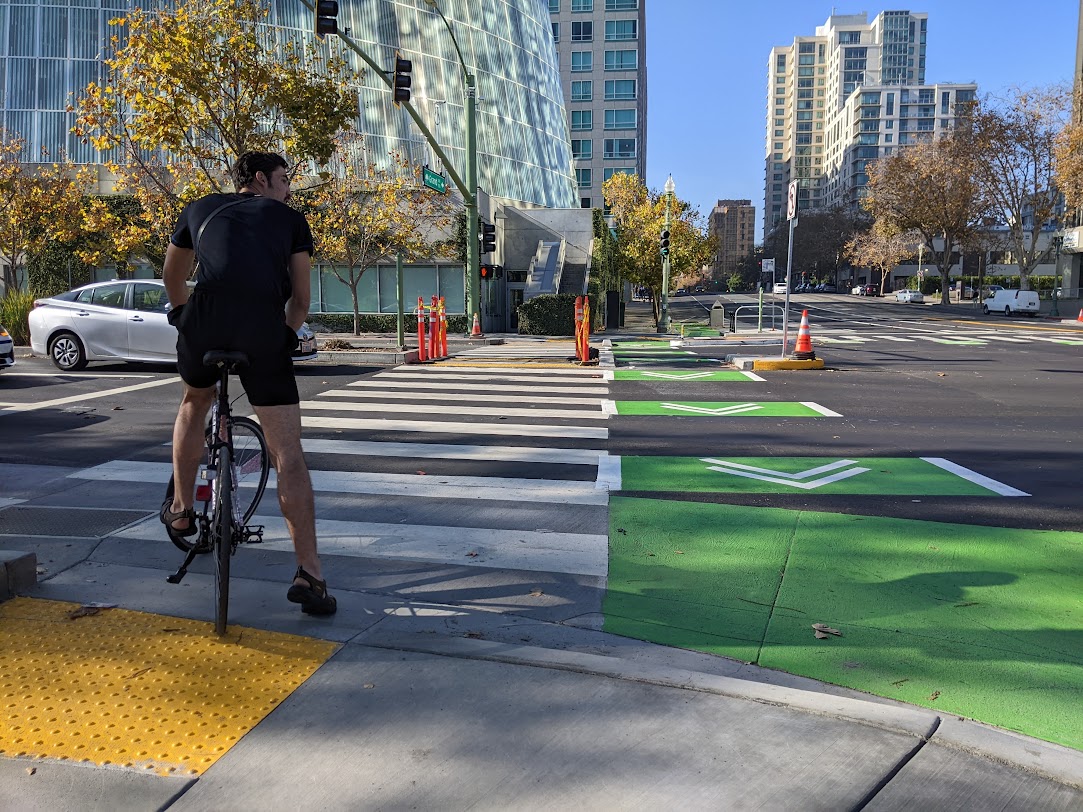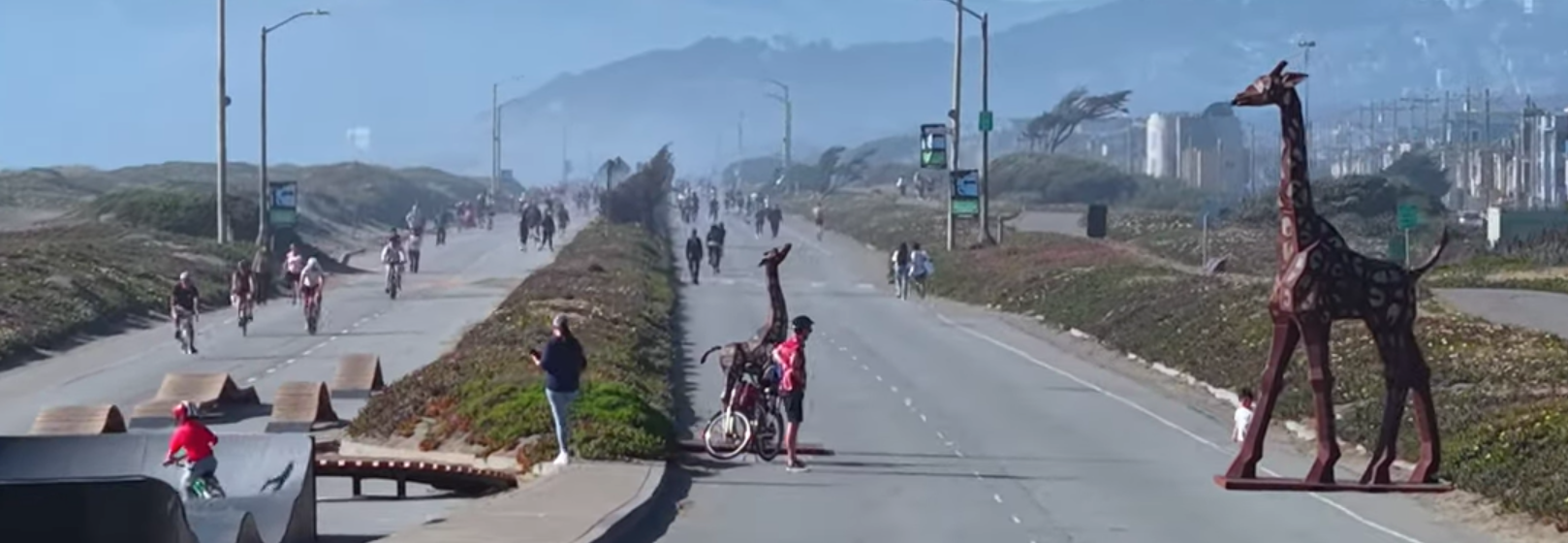Transportation advocates were thrilled last week when the nine-county Bay Area regional transportation planning and funding body, the Metropolitan Transportation Commission (MTC), established a fluid pot of money for innovative transportation projects, from Safe Routes to School programs and bicycle educational campaigns, to parking policies and demand management strategies meant to reduce the over-reliance on automobiles [pdf].
 Photo: pbo31
Photo: pbo31"This is the first program in the country dedicated to sustainability through travel demand management, not more capacity," said Stuart Cohen, Executive Director of TransForm, a smart growth and transportation advocacy organization.
The MTC allocated $80 million over the next three years, including $28 million that had previously been earmarked for highway ramp metering lights. Cohen said the MTC had received more than 500 letters from constituents around the region clamoring for the climate money and that senior staff had been refreshingly receptive and committed to dialoge.
"They were quite open in letting us help shape what the project will look like."
Long a priority for TransForm, the sustainability funding will focus on four key components:
- Climate action plans - the money will assist county and city leaders in developing climate action plans or implementing strategies already in developed plans. Cohen expected to see many more innovative parking campaigns like SFPark, SFGo and pricing and congestion mitigation.
- Safe Routes to Schools (SRTS) - This will be the first regionally funded SRTSprogram with money for every school in the region, allocated by county based on thenumber of children attending the schools. "They are actually doling out transportation money based on the safety and welfare of children," remarked Cohen.
- Educational outreach - Though this component is largely undefined, it will likely include money for education strategies around therelationship between climate and transportation choices.
- Evaluation models - Money to help to establish a metaevaluation program to make sure all of the regional projects funded with MTC money have similar, diligent metrics.
The final component was the one that Cohen highlighted as being one of the most critical. "There is a huge disconnect currently on how these programs are evaluated and their ability to get into regional travel models," he said.
"If
we can't translate these changes on the ground up into this regional
model, decision makers won't allow these effective
strategies to compete for dollars with larger infrastructure projects," he added.
The MTC has yet to define what stakeholder input will be, but some projects will likely start to be selected for consideration by this summer, according to Cohen, who said the region's planners have so often focused on improving or increasing capacity on roadways for cars, they've failed to develop strategies for reducing driving, which will be mandatory when California climate legislation like AB 32 and SB 375 reduction requirements take effect.
"We're so focused on supply, we're missing out on all these creative strategies to reduce driving," said Cohen. "The lowest hanging fruit is transportation demand management, getting more folks to use the programs and to reduce the [car] trips they are taking."




